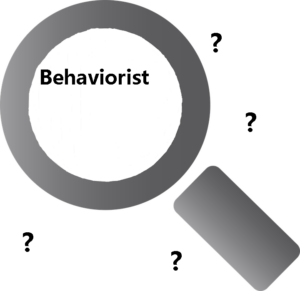Barks Blog
Transparency in Training and Behavior
Those in the world of canine training and behavior know there is a wide gap between philosophy and methods employed by professionals, and even some rifts between professional organizations. It can be confusing for those of us in the field, and more so for pet owners who just want help.
I have heard the founder of The Pet Professional Guild, Niki Tudge, speak passionately about the need for transparency as a consumer issue. Until I heard her say so I never thought of it that way.
Now I am more aware and the lack of transparency in our profession catches my eye, like the way my Labradors notice bunnies and squirrels darting about the yard. It has become painfully obvious that consumers of pet services can be led astray by a “professional” who may well be causing harm rather than helping.
When the primary cause of death in young dogs is euthanasia due to behavior, transparency is vitally important. Pet owners need to know what they are getting.
Recently I came upon marketing material of a local trainer who identified as a “canine behaviorist.” I thought to myself, “Really? It would be swell if I had a behaviorist to refer to, but it just isn’t so.”
The only behaviorist I know in state of Wisconsin is the renown Dr. Patricia McConnell, Ph.D., CAAB. McConnell no longer takes new clients so I asked her just a few months ago who she recommended I refer serious behavioral cases to…and that referral was not the individual claiming to be a “behaviorist.”

The nearest Board Certified Veterinary Behaviorist is John Ciribassi, DVM, DACVB and he practices in Illinois. He was not the named “canine behaviorist” either, so I investigated further.
I examined the web site of the alleged “behaviorist” and saw another claim to that credential, but no evidence. There was an additional claim of “becoming a Certified Behavior Consultant Canine-Knowledge Assessed (CBCC-KA)” in bold print.
It would be a bold accomplishment indeed, since the trainer is not even a CPDT, which is a pre-requisite to sit for the CBCC exam.
Like Buddha gathering gopher scent in the field, I sniffed about the membership registries of professional organizations in search of the elusive “behaviorist”.
I checked Certification Council for Professional Dog Trainers (1), Association of Animal Behavior Professionals (2) , American College of Veterinary Behaviorists (3) the Animal Behavior Society (4) and The Pet Professional Guild (5).

The mysterious “behaviorist” was nowhere to be found.
To be fair, I contacted the individual directly, politely expressed my confusion about credentials and requested clarification. I received no response.
I was reminded of the Wendy’s marketing campaign in which an elderly lady at a fast food restaurant peeled off the hamburger bun and declared in disappointment “Where’s the beef?” (5)
So what’s the beef about someone passing themselves off as a behaviorist?
My first beef with a false claim is that it is unethical. Those who offer professional services should not deceive their customers.
Second, this individual advertises their skill and experience with “aggression, fear, anxiety, hyperactivity and destructive behavior” in dogs. These are serious behavioral issues and pet owners seeking help deserve fair treatment and competent professional services.
These are also matters of public safety and stakeholders include the pet, the family and virtually anyone who may cross the path of the animal. The very life of the pet may depend upon the services rendered. There is no room for deception in the relationship between pet owner and professional.
Third, the professional who exaggerates their expertise may find themselves in legal jeopardy. Attorney Kenneth M. Phillips practices law in Beverly Hills (CA) and specializes in cases involving injuries caused by dogs. Phillips takes cases throughout the United States. (6)
Professionals who work with animals face several potential liabilities, and among them is creating false expectations.
Phillips explains “Over-aggressive marketing of training services can result in liability based on false expectations about a trainer. If you hold yourself up to possess special expertise in an area then you will be held to the same standard as an expert in that area.
I am thinking specifically of the term “behaviorist” to describe a trainer. If you are not an accredited applied animal behaviorist or a veterinarian who is board certified in animal behavior, my recommendation is do not use the term “behaviorist” to describe what you do.
That word is developing a meaning that is filtering out to the community, but the real meaning is the one used in court. Whenever anybody holds themselves out to have special experience or training in a field they are required to perform just like they have that special experience or training.”
Phillips presented “Avoiding Liability when you Train, Shelter or Adopt-out” to The Biting Dog Conference (Novato, CA) in 2005. I recommend all canine professionals study this recorded presentation. (7)
My final beef with false representations is that it harms the rest of us, whose professional credibility may be doubted by the larger community due to the behavior of unscrupulous individuals. I have seen that happen in other professions.
Thankfully the Pet Professional Accreditation Board (8) works to raise the bar in our industry, as stated “To address the need for consumer protection, animal welfare and a high level of skill proficiency the PPAB is offering a professional accreditation program that ensures transparency and accountability among pet trainers and behavior consultants. (Emphasis added) The program’s goal is to provide a meaningful credential that supports pets and their owners and guarantees an unprecedented high level of competency for force-free pet professionals.”
Let us each be transparent in our business practices, steadily improve our knowledge, and remain within our level of competence and expertise when offering services. For pet owners, what they see should be what they get.
(1) https://www.ccpdt.org/dog-owners/certified-dog-trainer-directory/
(2) https://www.associationofanimalbehaviorprofessionals.com/directory.html
(3) https://www.dacvb.org/about/member-directory/
(4) https://www.animalbehaviorsociety.org/web/applied-behavior-caab-directory.php
(4) https://petprofessionalguild.com/Findyourmember
(5) “Where’s the Beef” Copyright, 1984. Wendy’s restaurant chain.
(6) Kenneth M. Phillips, Attorney at Law, www.dogbitelaw.com, [email protected]
(7) https://dogbitelaw.com/store/avoiding-liability-when-working-with-dogs
